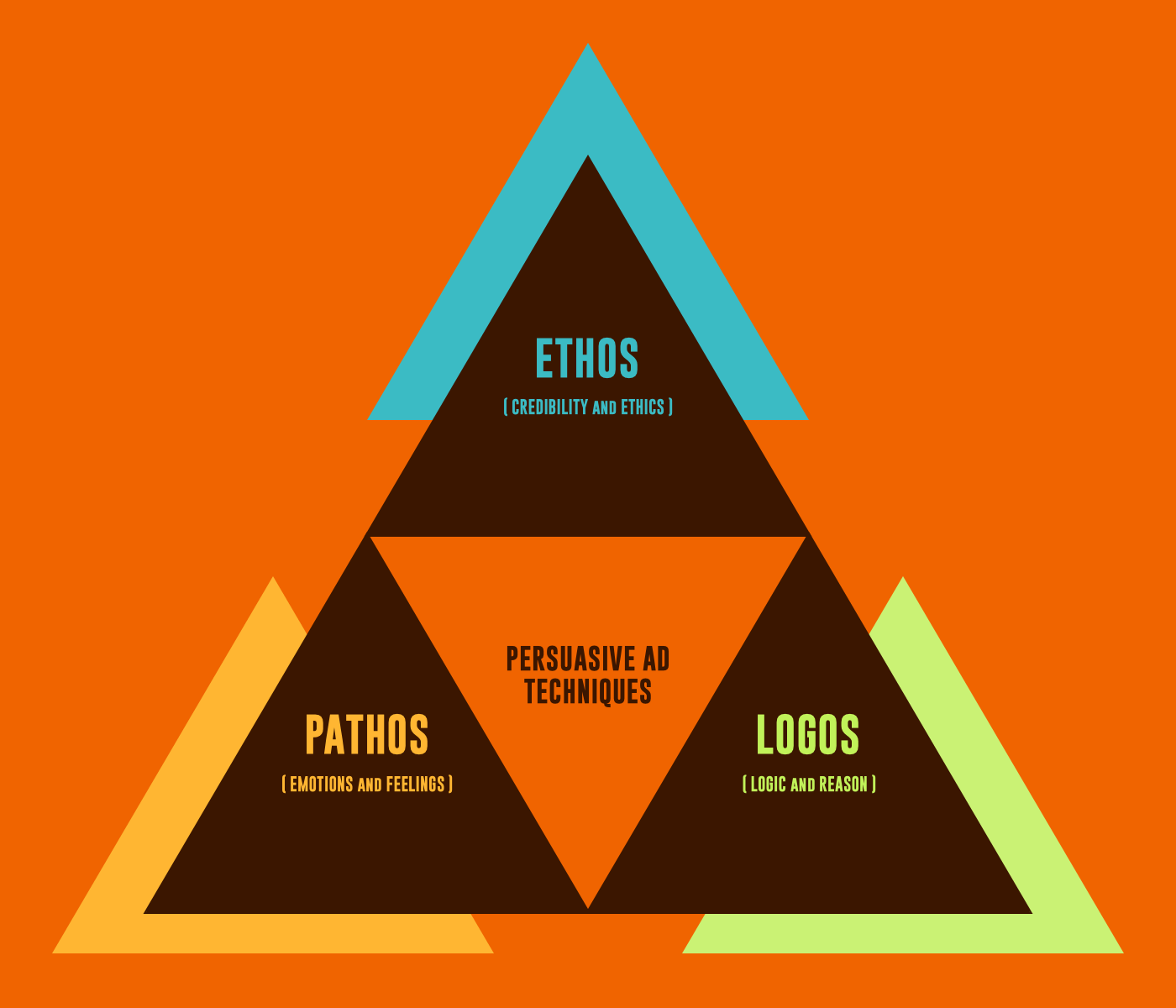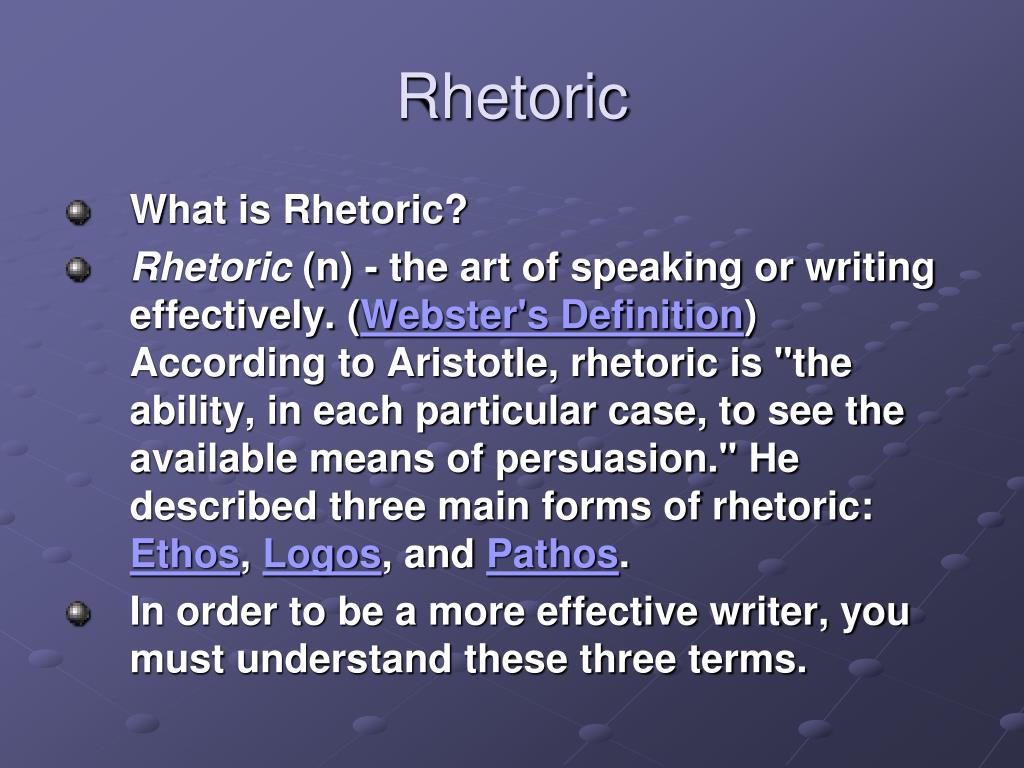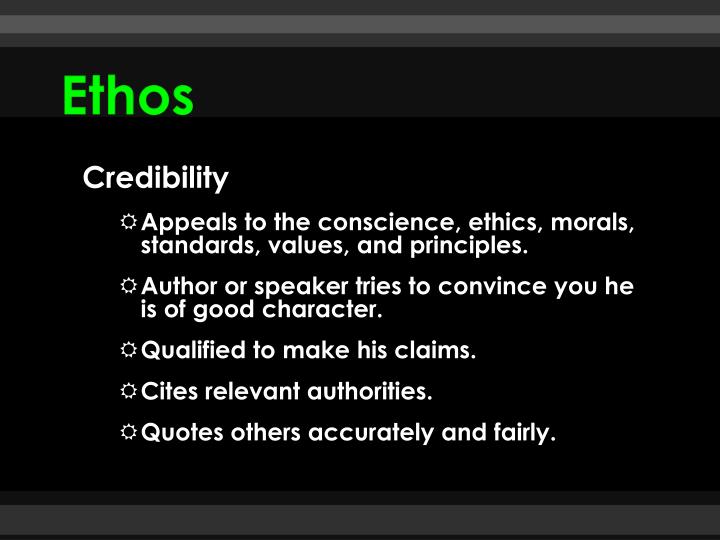

Think of all the media you see and hear every day: Twitter, television shows, web pages, billboards, text messages, podcasts. Rhetoric-the way we use language and images to persuade-is what makes media work. Media is one of the most important places where this kind of analysis needs to happen.
AFFECTUS ETHOS RHETORIC HOW TO
The more we know about how to analyze situations and draw informed conclusions, the better we can become about making savvy judgments about the people, situations, and media we encounter. In fact, our saturation in media and the images it presents is one of the reasons why learning to do rhetorical analysis is so important. Each day, we meet different people, encounter unfamiliar situations, and see different kinds of media that ask us to do, think, buy, and act in all sorts of ways. Daily, we find ourselves in situations where we are forced to make snap judgments. We have, of course, heard that you “can’t judge a book by its cover,” but, in fact, we do it all the time. You have become able to analyze quickly what people are saying about themselves through the way they choose to dress, accessorize, or wear their hair. Over the years, as you have interacted with others, you have built a mental database that you can draw on to make conclusions about what a person’s looks tell you about their personality. Instead, you quickly took in the information and made an informed-and likely somewhat accurate-decision about that person. Now as you performed this kind of analysis, you likely didn’t walk through each of these questions one by one, write out the answer, and add up the responses to see what kind of person you are interacting with. For most of us, many of the people we encounter on a given day are subject to this kind of quick analysis. If you don’t tend to notice any of these things about your instructors, you certainly do about the people around you-your roommate, others in your residence hall, students you are assigned to work with in groups, or a prospective date. You might have also noticed your instructor’s shoes, their jewelry or tattoos, whether they wear a wedding ring, how their hair is styled, whether they stand tall or slump, how quickly they walk, or maybe even if their nails are done. It is likely that the above observations were only a few you made. You might have noticed what kind of bag they are carrying-a tattered leather satchel? A hot-pink polka-dotted backpack? A burgundy briefcase? You probably also noticed what they are wearing-trendy slacks and an untucked striped shirt? A suit? Jeans and a T-shirt?



The moment your instructor walked into the room, you likely began analyzing them and making assumptions about what kind of teacher they will be. Imagine the first day of class in first-year composition at your university. Understanding rhetorical messages is essential to help us become informed consumers, but it also helps evaluate the ethics of messages, how they affect us personally, and how they affect society.Laura Bolin Carroll Liz Delf Rob Drummond and Kristy Kelly Laura Bolin CarrollĪdapted by Liz Delf, Rob Drummond, and Kristy Kelly First Impressions Think of all the media you see and hear every day: Twitter, television shows, web pages, billboards, text messages, podcasts, and more! Media is constantly asking you to buy something, act in some way, believe something to be true, or interact with others in a specific manner. In fact, our saturation in media and its images is one of the reasons why learning to do rhetorical analysis is so important. Each day we meet different people, encounter unfamiliar situations, and see media that asks us to do, think, buy, and act in all sorts of ways. Daily we find ourselves in situations where we are forced to make snap judgments. We have heard that “you can’t judge a book by its cover,” but, in fact, we do it all the time.


 0 kommentar(er)
0 kommentar(er)
